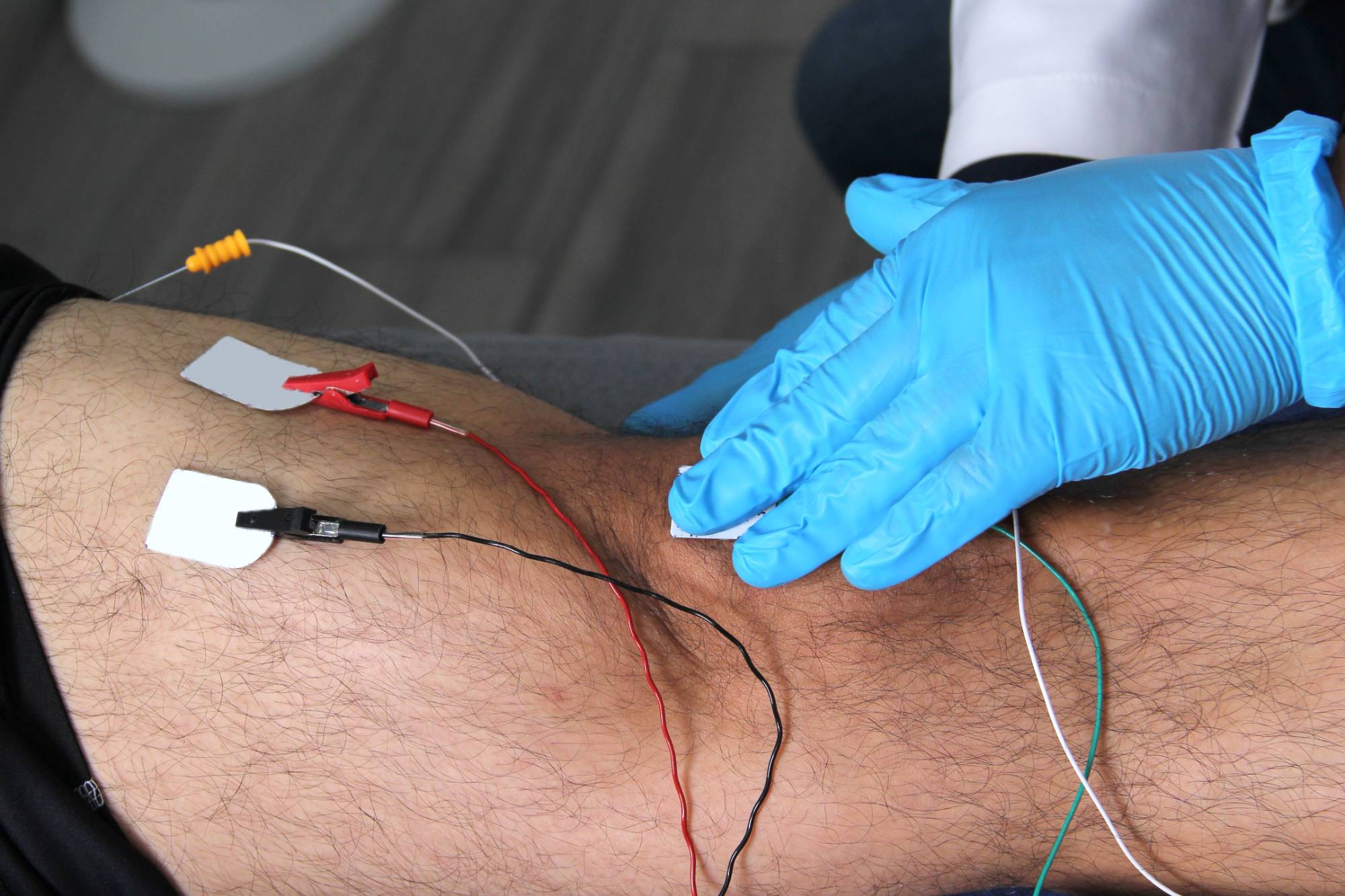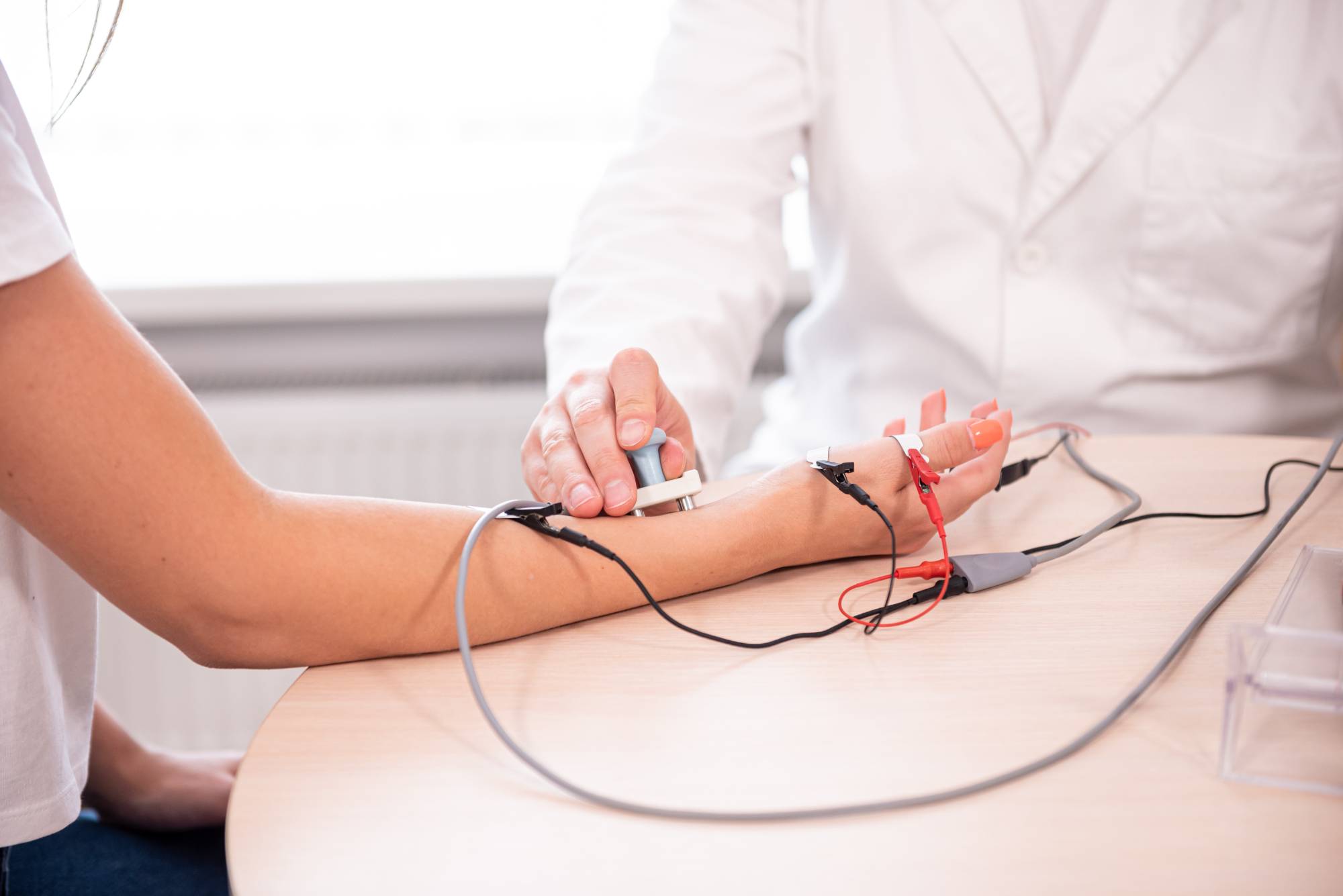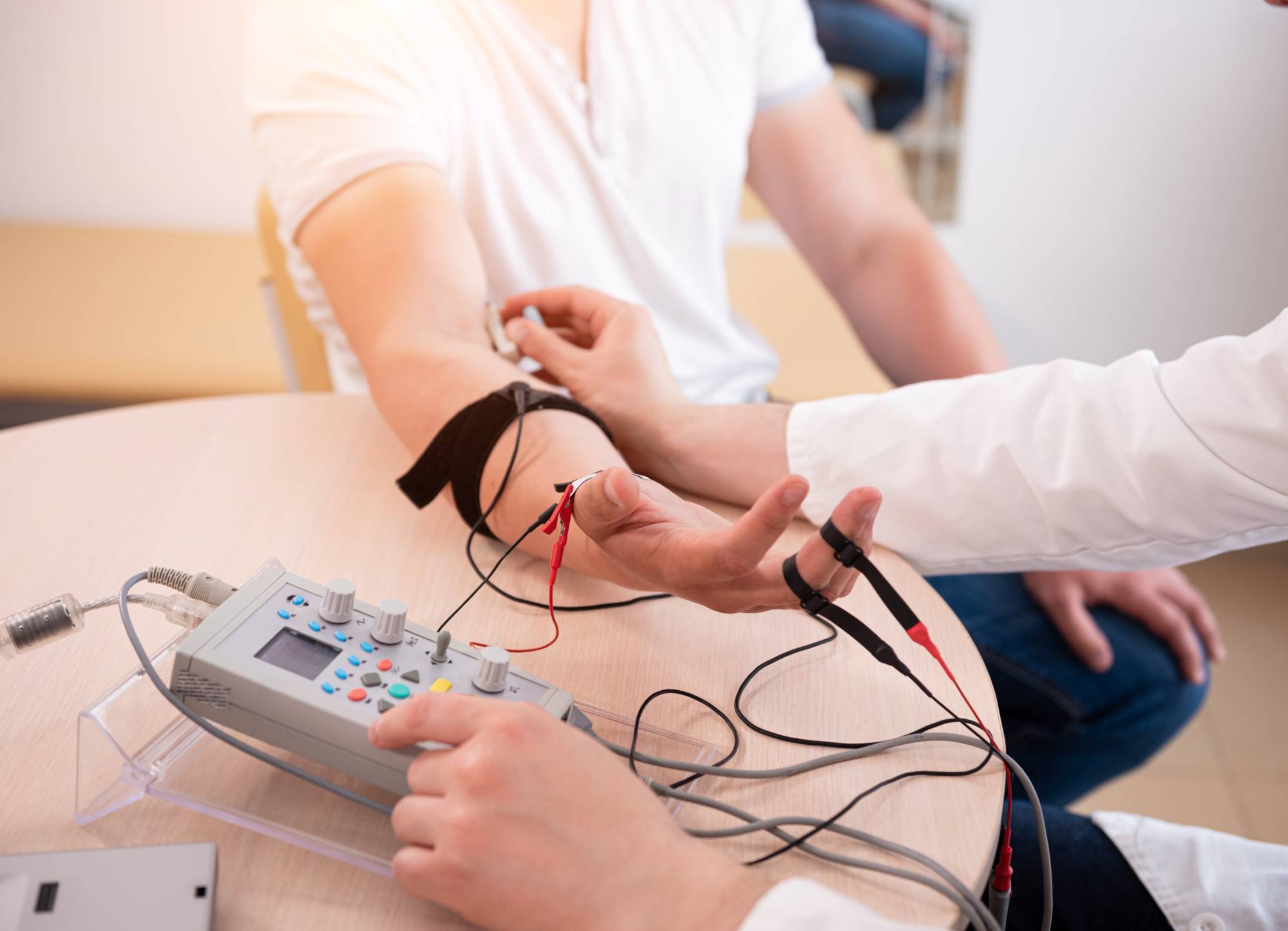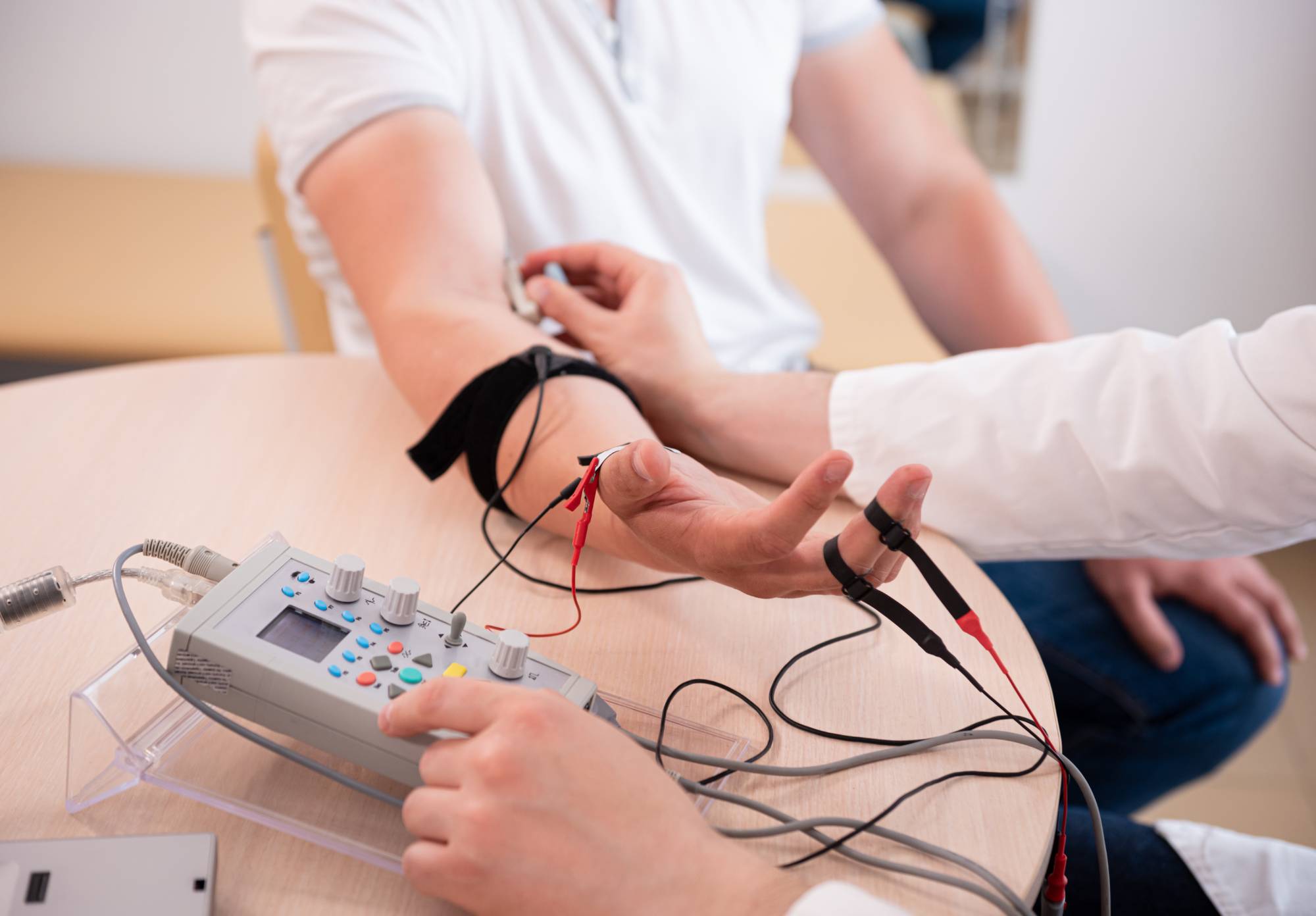Advanced electromyography testing that pinpoints exactly what’s causing your muscle weakness, numbness, or tingling.

Reviews

You’ve been dealing with unexplained muscle weakness, strange tingling, or that nagging numbness for months. Maybe your primary care doctor suggested nerve testing, or you’re tired of wondering if something serious is happening to your body.
EMG testing gives you concrete answers. This diagnostic procedure measures the electrical activity in your muscles and nerves, showing us exactly where problems exist and how severe they are.
Within one appointment, you’ll know if you’re dealing with carpal tunnel syndrome, sciatica, muscle disorders, or nerve damage. No more guessing. No more wondering if it’s all in your head. Just clear, measurable results that point toward the right treatment.
NY Spine Medicine brings specialized neurological expertise to Citrus Grove and surrounding Florida communities. Our team focuses specifically on spine-related conditions and nerve disorders, which means we see cases like yours regularly.
This isn’t a general practice trying to handle everything. We are specialists who understand the nuances of nerve conduction studies and electromyography testing. We know how to interpret subtle findings and explain what your results actually mean for your daily life.
We have built our reputation on thorough diagnostics and straight-forward communication with patients who need real answers about their nerve and muscle function.

Your EMG testing appointment typically takes 30-60 minutes and involves two main components. First comes the nerve conduction study, where small electrodes are placed on your skin to measure how well electrical signals travel through your nerves.
Next is the electromyography portion, where a thin needle electrode is inserted into specific muscles to record their electrical activity. Yes, there’s some discomfort, but most patients describe it as similar to getting blood drawn or receiving an injection.
You’ll get results immediately. We review your test data with you right there, explaining what the measurements show and how they relate to your symptoms. You’ll leave with a clear understanding of your diagnosis and recommended next steps for treatment.

Ready to get started?
Your EMG testing includes both nerve conduction studies and muscle testing in one comprehensive appointment. We evaluate multiple nerve pathways and muscle groups to get a complete picture of your condition.
This thorough approach is especially important for Citrus Grove residents dealing with complex symptoms that might involve multiple areas. Whether you’re experiencing carpal tunnel syndrome from years of computer work, sciatica from a herniated disc, or muscle weakness from an unknown cause, comprehensive testing reveals the full scope of the problem.
You’ll receive detailed results documentation, clear explanation of findings, and specific recommendations for treatment options. Our goal is giving you enough information to make informed decisions about your care moving forward.

New York:
Florida:
Support